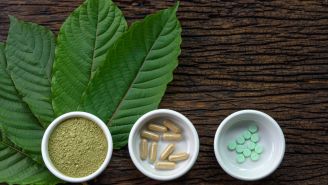Updated on September 26, 2024.
It seems like there are few foods that get as much attention in the popular press as coffee. And it stands to reason: As one of America’s most popular drinks, a lot of research has been applied to it. But reading all the headlines—which are often contradictory—can give you a feeling of whiplash.
Is coffee really a longevity-boosting tonic or one laced with dangerous chemicals?
To help make sense of things, here’s a look at some of the research into the health benefits—and possible detriments—of coffee.
Health benefits of coffee...
In recent years, much of the news on coffee has been positive. For example:
- One analysis published in 2021 in Circulation found that across three different studies, drinking more coffee was associated with a lower risk of heart failure.
- In people who did not have heart disease, light to moderate coffee consumption (up to 3 cups per day) was associated with a lower risk of stroke and fatal heart disease, according to research presented at the European Society of Cardiology in 2021.
- Drinking two to three cups of coffee or tea each day was linked to a 32 percent lower risk of stroke in a 2021 study of more than 365,000 older UK adults. It was also linked to a 28 precent lower risk of dementia. The study was published in the journal PLOS Medicine.
- Another study published in 2020 in the New England Journal of Medicine reported that drinking two to five cups per day (of about 8 ounces each) was associated with overall reduced mortality.
Why the potential life-prolonging effect? Researchers aren’t positive, but there may be several contributing factors.
Certain compounds in coffee may help tame levels of inflammation and reduce insulin resistance that can contribute to the development of chronic disease. Some evidence also shows that coffee is linked to improved liver health.
...and potential detriments
That said, higher amounts of coffee may not be a good idea, as doses of caffeine exceeding 400 milligrams (about the amount in four or five 8-ounce cups of coffee) may be associated with jitteriness, anxiety, insomnia, and increased heart rate.
What about the notion that drinking coffee can actually be life-threatening? That dates back to 1991, when the World Health Organization listed coffee as a carcinogen, or a substance that can cause cancer in high amounts. This advisory was reversed in 2016, however, and more current evidence does not show a link between coffee and an increased risk of cancer.
When to be careful with coffee
Note that pregnant people are advised to limit caffeine to 200 milligrams a day (about the amount in two stiff cups of coffee) or less, because higher amounts of caffeine are linked to low birth weight or pregnancy loss.
What's the takeaway message?
If you drink coffee (or other caffeinated beverages like tea, soft drinks, or energy drinks) enjoy your daily ritual. But you may want to think twice if you’re reaching for that fifth or sixth mug of the day. And pay attention to what else you’re reaching for with your cuppa joe (like cigarettes or a greasy cheeseburger). As nice as the potential health benefits of coffee sound, they won’t make up for other bad health habits.







